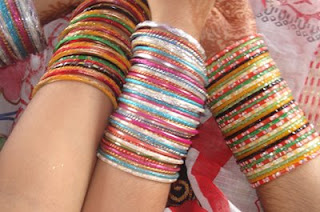Cross posted from Sristi Kotha
Bangladesh is a non-communal country, where Muslims, Hindus, Christians and Buddhists live together with common indicative Bangladeshi (Bangali). In turn of six seasons in this highly beautiful country, Bangladeshis overwhelm with various kinds of festive occasions such as Pahela Baishakh (1st day of new Bengali year), Borshaboron (reception of rainy season), Nobanno Utsab (celebration with new crops at Hemonta), Pahela Falgun (1st day of spring), Chaitra Songkranti (last day of Bengali year), National mother tongue day, Independence day besides different community’s religious festivals. But I think Pahela Baishakh is the biggest celebration where gay and festive Bangladeshis of various communities hold a festive of one spirit for the devotional reception of new Bengali year.
Bangladesh is a non-communal country, where Muslims, Hindus, Christians and Buddhists live together with common indicative Bangladeshi (Bangali). In turn of six seasons in this highly beautiful country, Bangladeshis overwhelm with various kinds of festive occasions such as Pahela Baishakh (1st day of new Bengali year), Borshaboron (reception of rainy season), Nobanno Utsab (celebration with new crops at Hemonta), Pahela Falgun (1st day of spring), Chaitra Songkranti (last day of Bengali year), National mother tongue day, Independence day besides different community’s religious festivals. But I think Pahela Baishakh is the biggest celebration where gay and festive Bangladeshis of various communities hold a festive of one spirit for the devotional reception of new Bengali year.
The first day of new year begins by wishing one another saying shuvo nababarsha (happy new year). Every one wears same type of dresses which are combination of red and white.Men use to wear Panjabi or Fotua and women wear Shari, some girls use Slack and Kameez. Girls are ornamented with Bengali adorn. They use henna paste, bangles, various types of ornaments made by mud, flowers etc. Some people use abeer (kind of red powder), some draw alpona on their face or hand. Every one have special food in this day which is panta (boiled rice soaked with water) with fried hilsa fish, uncooked onion, green chili and various kinds of bhorta (one kind of cooked food) of dried fish (preserved by seasoning and drying in the sun), potato, pulse or prawn.
Many organizations and institutions arrange rally. People gather in rally with colorful poster, mask etc. Baishakhi fairs and cultural shows are arranged here and there. Various types of toys, pottery, handicrafts, cosmetics, fan (of a palmyra-leaf), sweetmeats etc are available in fair. Jatra pala (Opera) and puppet show are attractive parts of village fair. All cultural functions in this day begins with a song by world famous poet Rabindra Nath tagore which is aso… hey baishakh, aso… aso (come… oh Bishakh, come… come). Cultural functions are resounded by song, dance and poetry recitation. Most colorful and quite attractive fair and cultural functions are arranged at Romona Botomul in Dhaka. Sometimes storm called Baishakhi jhar occur suddenly. Then owners of stores in fair fall in hazard little bit.
Some indigenous people such as Chakma, Marma, Tonchonga and Tripura celebrate this day as their main festival which is called Bijhu. They are overwhelmed with indigenous festival.
As a Bangladeshi I also enjoy this day with others of one spirit. In my childhood I and my friends bought vandar (one kind of pot made by mud) from Baishakhi fair and saved money in it all around the year and in next new year we bought new dress by this money. It was a great pleasure to me. In this day we were walking about in the village fair. Riding in Nagor- dola and designing hands with color were the main attraction for me. When I was a student of college, then I and my friends gathered at college campus at the starting of day and then traveled by boat in the river called Bhairab. We passed our time with singsong, gossip, laugh etc. At afternoon we went at fair. The years after that I was a resident of Rokeya hall at University (KUET) and here pleasant drowsiness of festival for reception of new year begins at previous night of this day. Some girls were busy with rehearsal of sing song, poetry recitation, some were busy with making poster, some were drawing alpona (floor decoration of sprinkled rice flour) at hall courtyard, some were busy with designing their hands by henna paste, some were making cake for stall, some were going for festooning campus with posters. The night was passed in this way. At morning festival was started with cultural function. Some girls put mark of sandal paste on the forehead of others during the function. At the end of function we took special food for Pahela Baishakh. Then we went to the stalls held by some students of the university and after that we walked about various place. We also enjoyed film show at university auditorium.
Like me all Bangladeshis enjoy this day. At one time this day takes farewell from us but it offers new dreams for new days and says, “happy every day of new year”.













1 comment:
Buy T-shirts at reasonable price in Dhaka
Post a Comment